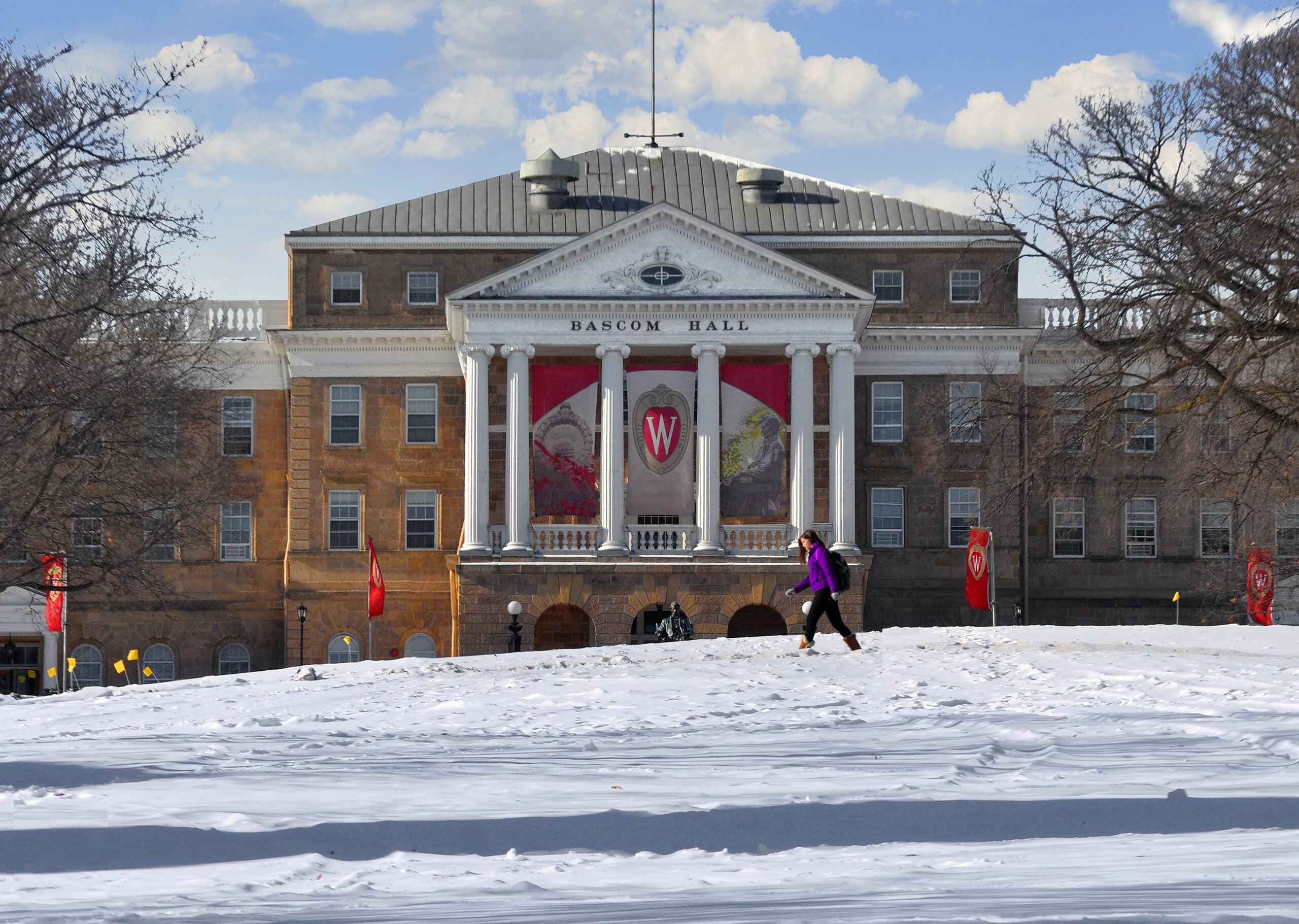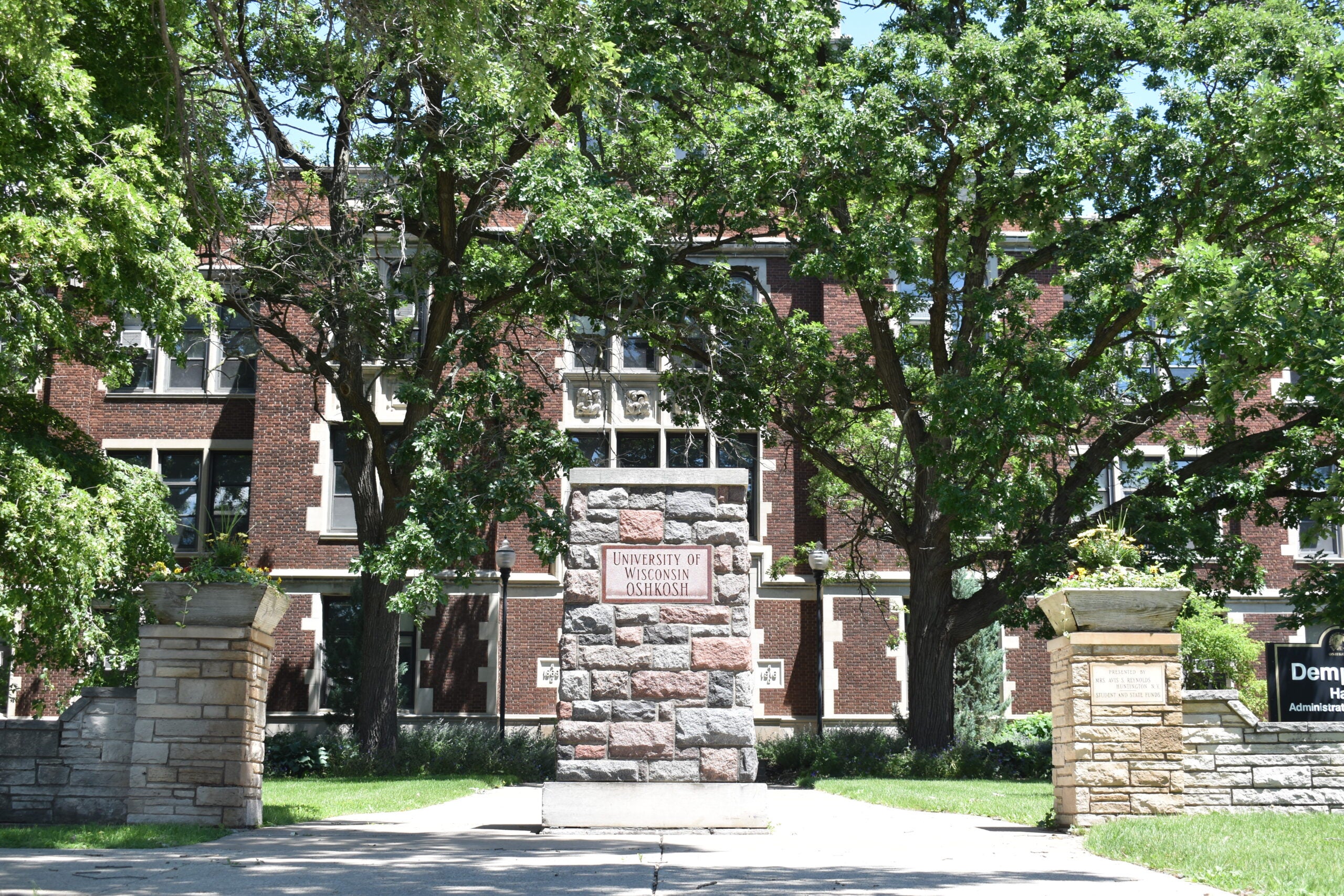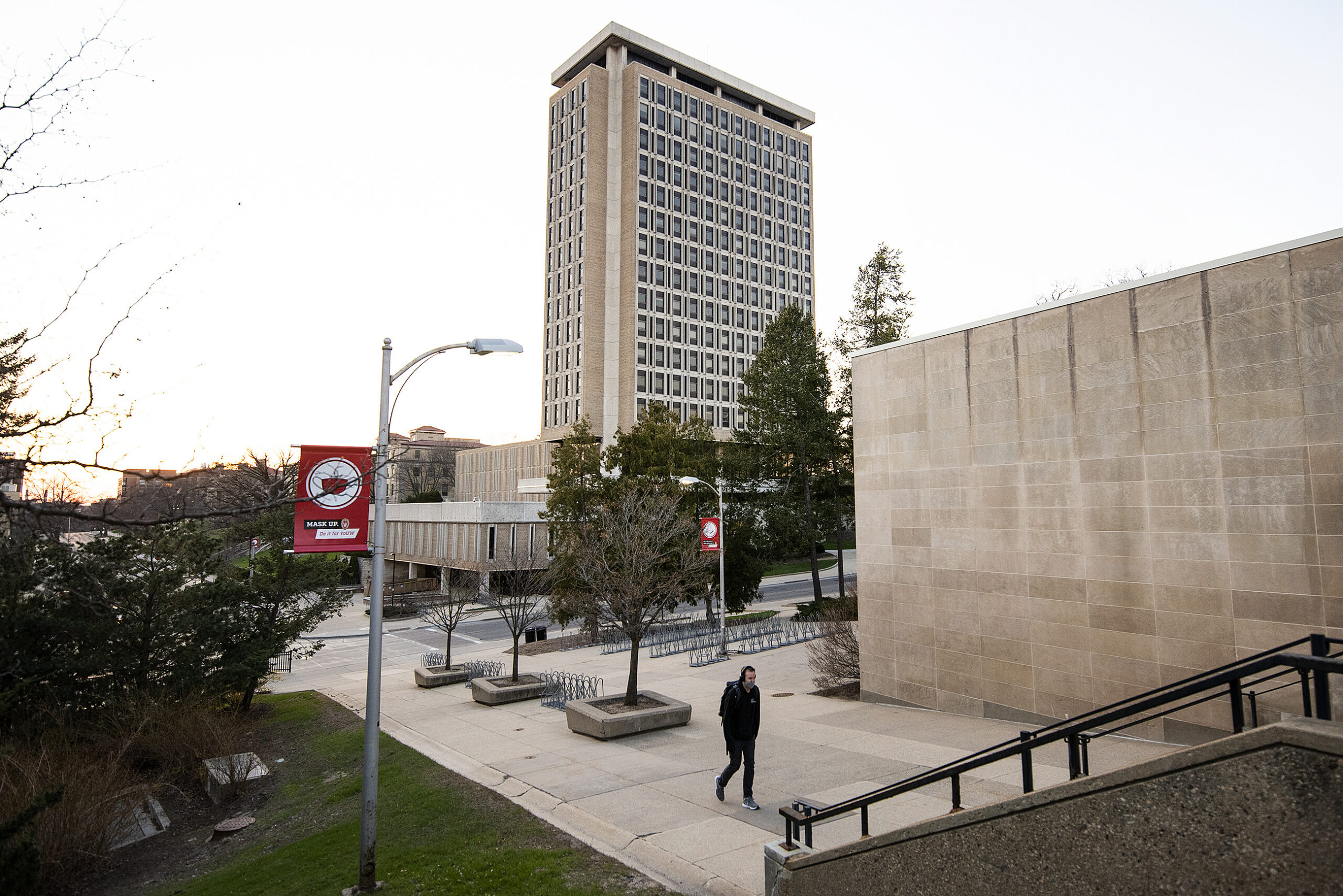The University of Wisconsin System will petition the state Legislature’s budget committee to reclaim $32 million in cuts from the latest state budget, system president Jay Rothman said Friday.
During an appearance on Wisconsin Public Radio’s “The Morning Show,” Rothman said the system will ask for the money so that universities can address the state’s workforce needs.
“Wisconsin is in a war for talent right now,” Rothman said.
Stay informed on the latest news
Sign up for WPR’s email newsletter.
Republicans in the state Legislature made the $32 million in cuts hoping to defund diversity, equity and inclusion programs.
UW-Parkside and UW-Platteville recently announced potential furloughs, retirement incentives and layoffs to address budget deficits that total about $15 million. Earlier this month, UW-Oshkosh announced plans to cut 200 staff positions to address a projected $18 million deficit.
Rothman pointed to a recent survey that found the UW System finished 42nd nationally for state support of public university systems.
“I think you can make a very credible argument that our system has been starved for the last 10 years,” he said.
On “The Morning Show,” Rothman also discussed declining enrollment and what his previous private sector experience showed him about diversity, equity and inclusion programs.
The following was edited for brevity and clarity.
Lee Rayburn: You called plans from UW-Parkside and UW-Platteville “disappointing” but “not unexpected.” Why?
Jay Rothman: We are facing a perfect storm. We’ve had a 10-year period where we have had flat-to-declining state support on an inflation-adjusted basis. During that same period, we had a decade-long tuition freeze, eight years of which (was) imposed by the Legislature, which really reduced our ability to collect revenue.
Couple that with declining enrollment, driven by demographics and lower birth rates, but more importantly by the level of participation — fewer high school graduates (are) going on to higher education — and you add onto that inflation and the inflationary pressures over the last couple of years, quite frankly, it is not surprising our universities have been consuming their reserves at an unsustainable rate. And we set forth in our strategic plan that was adopted last year by the Board of Regents a requirement that our universities eliminate those structural deficits so that they can maintain long-term financial health.
READ MORE: 2 more state universities eye furloughs and spending cuts to address deficits
LR: What do cuts mean for the quality of education in the UW System?
JR: We are doing everything within our power to ensure that we protect our students as best we can. I think Oshkosh is a great example. Chancellor Andrew Leavitt made it very clear that the cuts were going to be away from the educational mission as best we could.
We are focused on 161,000 students that we have the privilege of educating. We believe this education changes the trajectory of their lives, changes the trajectory of their families’ lives and also changes the directory of our state and the world, quite frankly, because our graduates go on to do amazing things.
LR: How can the UW System address declining enrollment in a way that doesn’t affect quality of education?
JR: Certainly, we’ve got declining birth rates, and we know what our high school graduates are going to be 18 years from now. Math allows you to make that calculation. If it was just that demographic change, I think it would be manageable for the UW System.
The bigger culprit in all of this is the participation rate. There are fewer high school students that are going on to higher education, whether that be in the technical college system or in the university system. I would submit that that does not bode well for the future of the state of Wisconsin. We are increasingly moving into a technology-driven knowledge economy, and we’re going to have too many people in our state that will try to be competitive on a world basis without higher education. I think that’s going to be a challenge for Wisconsin in its long-term economic viability.
LR: You came from the private sector. What can the UW System do for the state’s economy?
JR: There is an enormous return on investment when the state invests in the university system.
In fact, we’re going to be asking for additional dollars that were set aside by the Legislature in a supplemental fund that the Joint Finance Committee will be looking at. We will be putting together a proposal to seek that $32 million that was withheld (by focusing) on workforce.
Wisconsin is in a war for talent right now. Every employer feels that. We are not graduating enough nurses, engineers, data and computer scientists, people in the business field and so on. We will put a very compelling proposal in front of the Joint Finance Committee to support (the) workforce. That’s what the budget legislation provided — that if we can put that compelling case forward, we would get that funding.
READ MORE: UW System president pushes back against criticism of campus diversity initiatives
LR: The $32 million in cuts, according to Assembly Speaker Robin Vos, are meant for eliminating diversity, equity and inclusion programs. What value did you see in those programs during your time leading a law firm?
JR: It was absolutely essential to us for a couple of reasons. One is we wanted to be able to attract the best talent we could find. And in order to do that, you had to be open to and supportive of diversity because that talent will come to you in all different perspectives. If you narrow your focus, you will not get the talent that you need.
Secondly, our clients were insisting that we have a diverse workforce. We know that adds to diversity of thought. We know that adds to better outcomes because you understand different perspectives differently. That’s why the business community, in my judgment, is very supportive of efforts to enhance diversity within their own organizations. And it was certainly something that we focused on very directly.
Wisconsin Public Radio, © Copyright 2025, Board of Regents of the University of Wisconsin System and Wisconsin Educational Communications Board.



